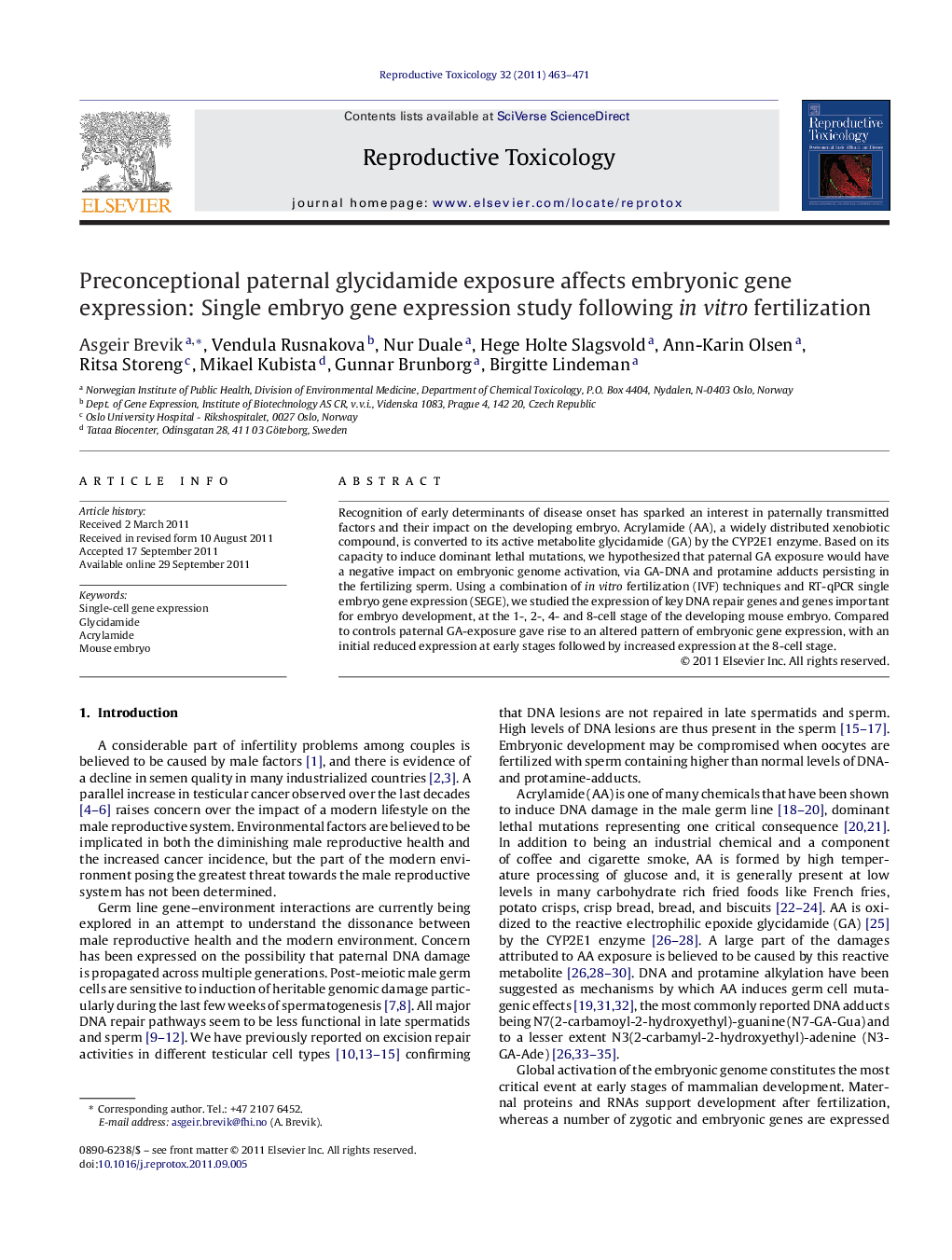| Article ID | Journal | Published Year | Pages | File Type |
|---|---|---|---|---|
| 2594009 | Reproductive Toxicology | 2011 | 9 Pages |
Recognition of early determinants of disease onset has sparked an interest in paternally transmitted factors and their impact on the developing embryo. Acrylamide (AA), a widely distributed xenobiotic compound, is converted to its active metabolite glycidamide (GA) by the CYP2E1 enzyme. Based on its capacity to induce dominant lethal mutations, we hypothesized that paternal GA exposure would have a negative impact on embryonic genome activation, via GA-DNA and protamine adducts persisting in the fertilizing sperm. Using a combination of in vitro fertilization (IVF) techniques and RT-qPCR single embryo gene expression (SEGE), we studied the expression of key DNA repair genes and genes important for embryo development, at the 1-, 2-, 4- and 8-cell stage of the developing mouse embryo. Compared to controls paternal GA-exposure gave rise to an altered pattern of embryonic gene expression, with an initial reduced expression at early stages followed by increased expression at the 8-cell stage.
► Early embryonic transcription of several genes is affected by paternal exposure to glycidamide/acrylamide. ► Single cell gene expression may become a valuable tool for reproductive toxicity studies.
